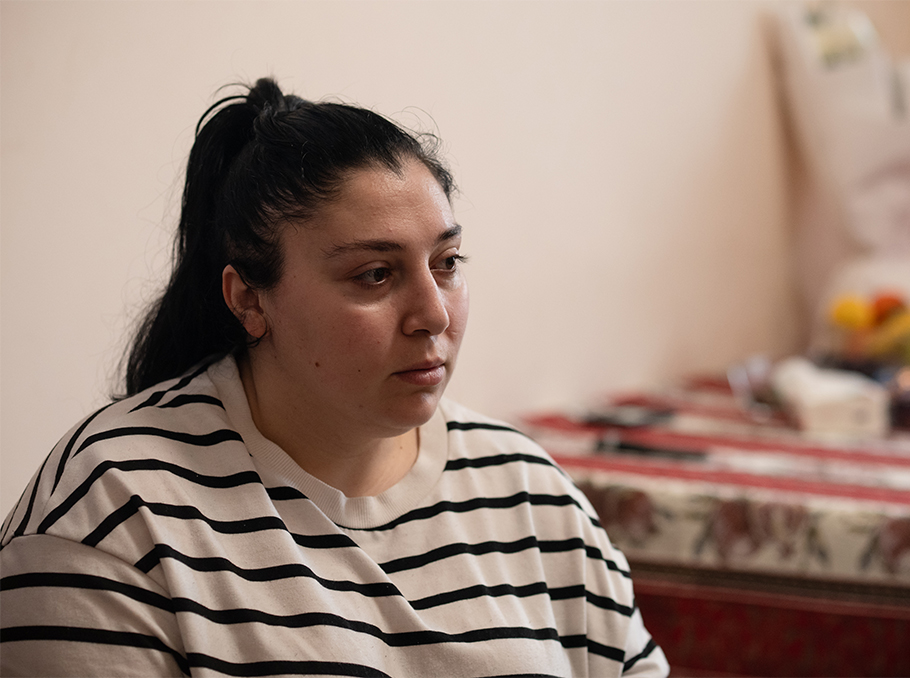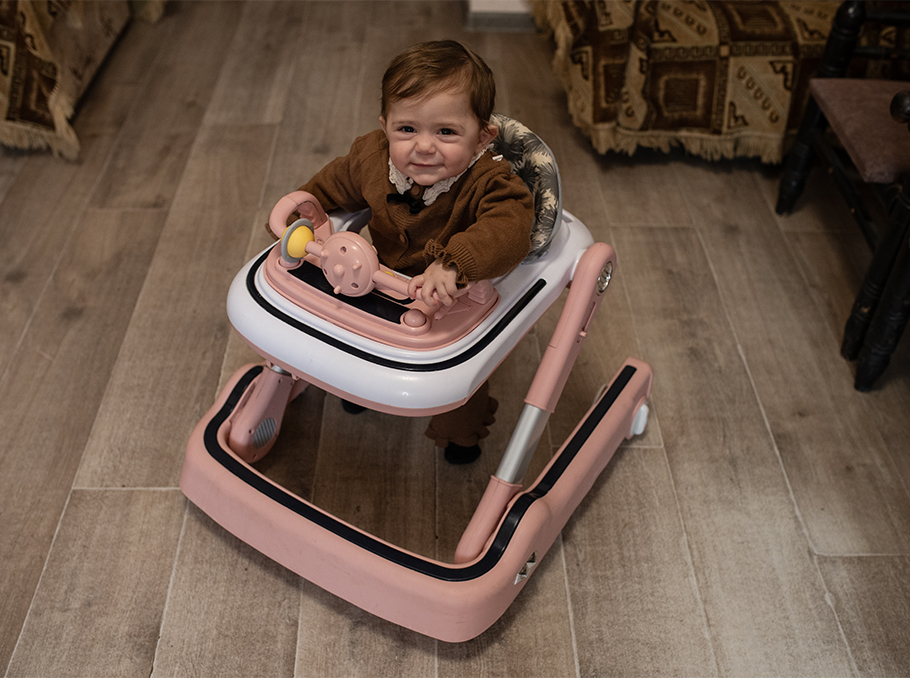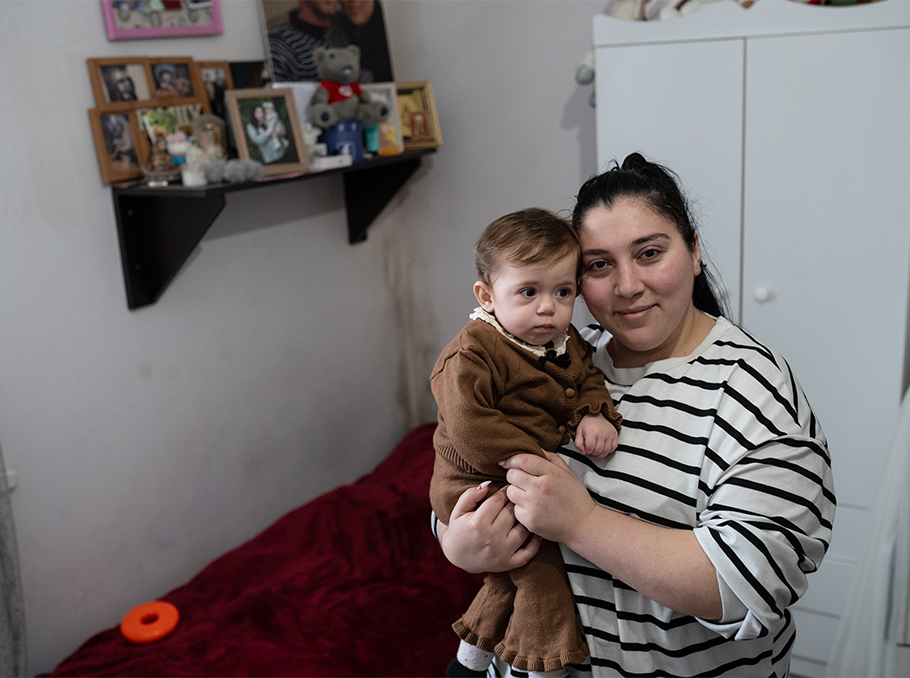For ten months now, “Hayordi” Charitable Foundation has been implementing “Mairenik” initiative dedicated to supporting the children of those killed and missing as a result of the war and the explosion at a fuel depot in September 2023, who were born after their death.
The bright continuation of life
The idea of “Mairenik” program was born in September 2023, when during the ethnic cleansing of Artsakh “Hayordi” Foundation offered assistance to the families of soldiers killed in the war and the explosion.
“While distributing aid, I noticed a pregnant woman in the line. I learned that her husband had died in the explosion. After some questioning I learned that, unfortunately, there were other pregnant women who were in a dire situation since they had lost their husbands. We tried to start a separate program for them, hence “Mairenik” program was created,” says Vache Vardanyan, the founder of “Hayordi” Foundation.
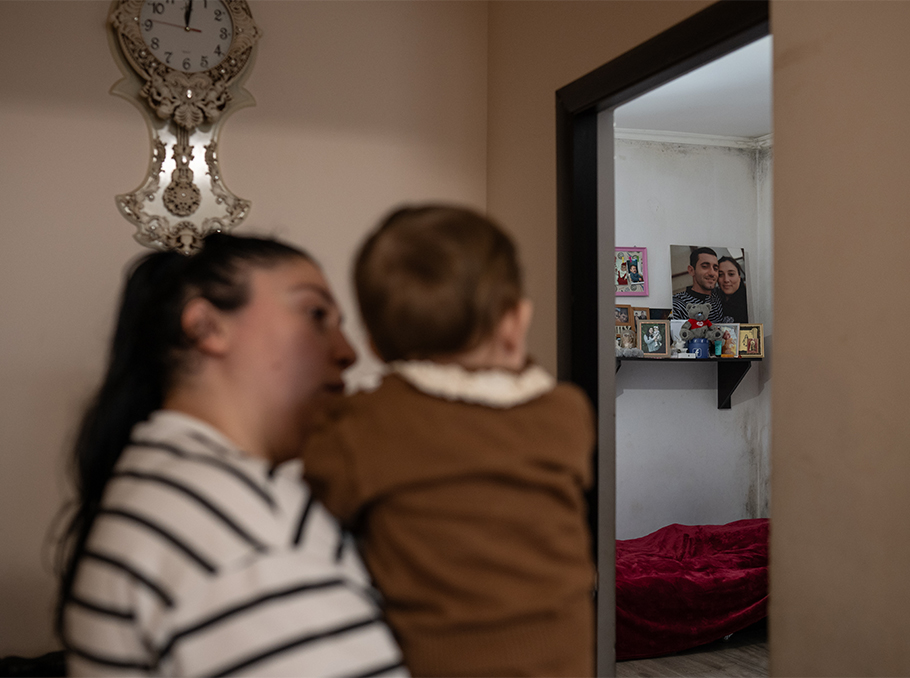
Photo: Davit Ghahramanyan
The program has eight beneficiaries, and every month, the Foundation allocates AMD 50,000 to them to help with childcare. According to the Director of the Foundation, standing by the mothers is very important as they have taken on double responsibility for the bright continuation of life in such tough circumstances.
“We have stood unwaveringly by their side throughout pregnancy. In addition to monthly financial support, we have also provided the essential items for the child, and cover medical expenses. I am generally against providing purely financial support, but this is different. These women had difficult pregnancies: blockade, war, loss of relatives and homeland.
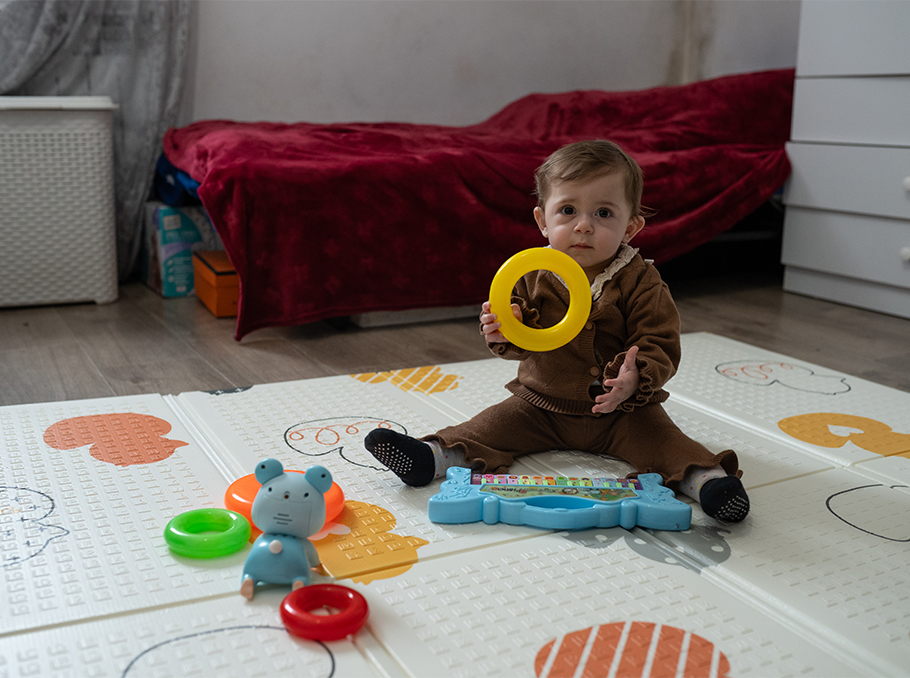
Photo: Davit Ghahramanyan
Oftentimes, there were great risks to the health of the fetus, but thank God, everything went well in all cases. Now many of those children are named after their fathers,” says Vache Vardanyan.
Rationed gasoline
Raisa and Grigori Avakimyan from Stepanakert had just gotten married when Azerbaijan launched an attack on the Republic of Artsakh on September 19, 2023. Grigori Avakimyan was a contract soldier, he decided to enlist in the army after the 2020 war. On September 18, Raisa told her husband that they would soon become parents. The next morning, as usual, he went to work, and then called and warned them to be careful and keep their documents with them.
Besieged Artsakh again faced power outages as Azerbaijan launched shelling attacks. As soon as Raisa heard the explosions she ran to the basement with her in-laws and stayed there for a long time.
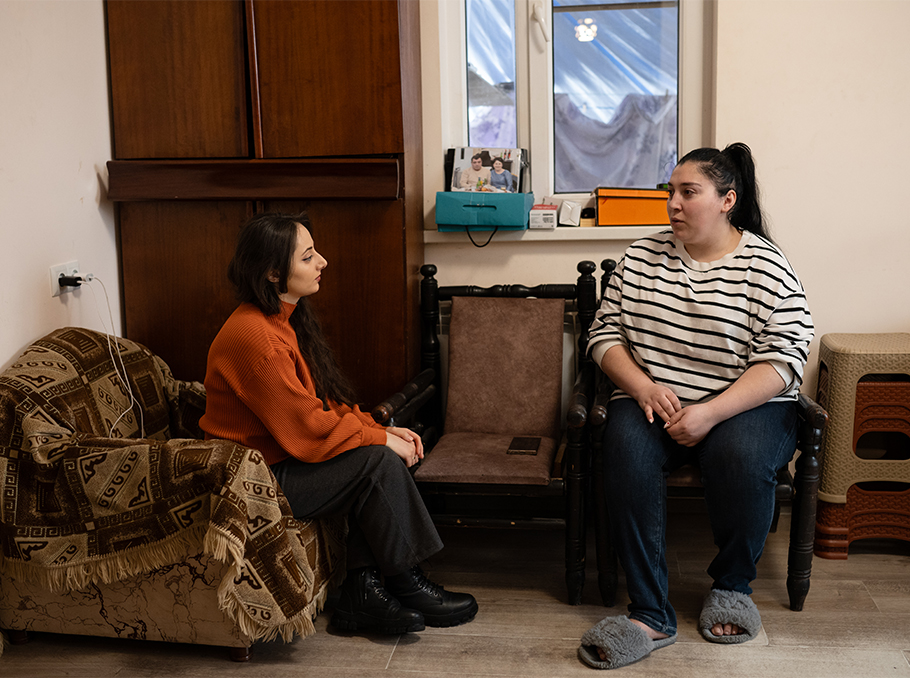
Photo: Davit Ghahramanyan
“Once the shelling stopped, Grigori came home, he was very angry and kept saying: “They sold us out, there is no government, there is nothing, the Azeris will soon reach the city,” Raisa recalls. On September 23, they began packing, and Grigori went to fuel up the car.
“He brought 80 liters of gasoline, parked the car in the yard to fill it up, then the neighbors came and started begging for fuel. One of the neighbors borrowed 5 liters to go visit his son’s grave one last time, the other wanted to flee with his children, so we were out of gasoline pretty quickly. I asked Grigori to leave some for us so that we could get out too, but he said: “I will find some more somewhere, but what will these people do?” Raisa recalls.
“I didn’t know where to look for my husband”
Soon, rumors began to spread that more fuel would be delivered. In the morning of September 25, Raisa ventured to the fuel depot in search of gasoline, although unsuccessfully. Later, Grigori and his brother Artur got a call and went to get some fuel. Raisa went to another petrol station thinking that if they had failed, maybe she could get fuel herself.
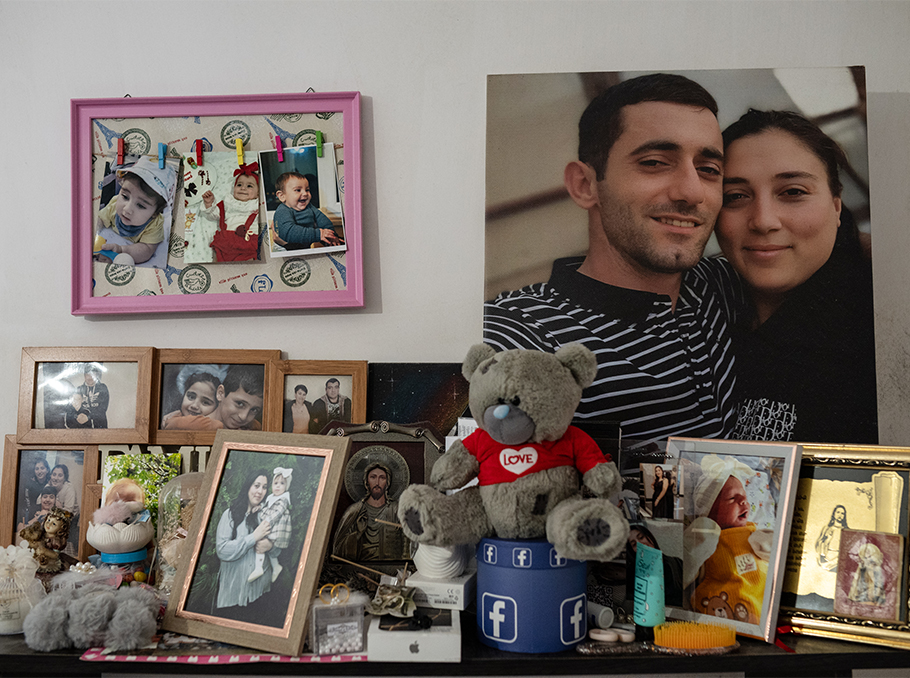
Photo: Davit Ghahramanyan
“I was standing in the line when the sky became overcast with dark clouds and thunder and lightning began, so we didn’t hear the explosion, but suddenly a car came speeding towards us, a man jumped out of it and said there had been an explosion at Haykazov petrol station, there were casualties and wounded. I quickly ran home, but I didn’t know that Grigori had taken the car. I thought I could take the car and drive there. Then my mother-in-law and I managed get a ride down to the fuel depot... It was hard looking at people there, I didn’t know where to look for my husband. At that moment, Artur hugged my mother-in-law and said: “Mom, I’m alive, but I can’t find Grigori.”
Raisa continued looking for her husband at the hospital, saw tragic scenes again, heard terrible screams, but couldn’t find her husband.
“I hoped that maybe we would find him at one of the hospitals here, in Armenia. Some time later, my parents in-law took a DNA test, and on November 6, we received a call confirming that my husband’s body was in the Abovyan morgue,” Raisa says.
“Hayordi” Foundation got in touch with Raisa in October 2023 and enrolled her in the “Mairenik” program. On April 19, Grigori and Raisa’s daughter, Gohar, was born. They had chosen the name together. Raisa says she will share heartfelt memories about her beloved Artsakh with her daughter.
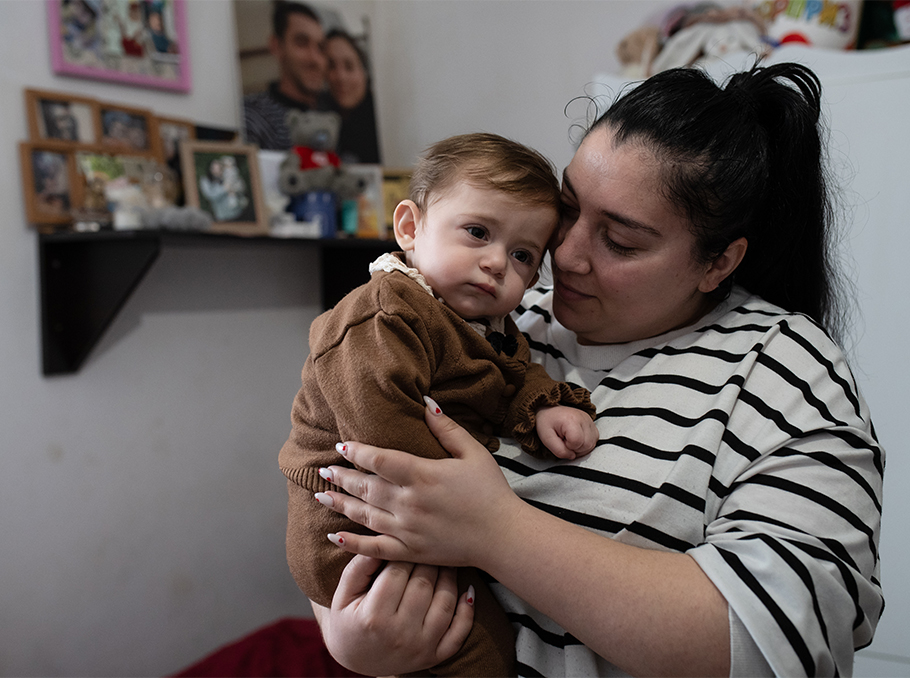
Photo: Davit Ghahramanyan
“Baby Gohar is the carbon copy of her father. When my mother-in-law visits her granddaughter, she gets very emotional, because little Gohar looks so much like her father. I am going to tell my daughter everything about her father, what he was like, how kind-hearted he was,” says Raisa.
Now Raisa lives with her parents and siblings in a rental in the city of Abovyan. Her parents and sister work, and she takes care of little Gohar. “I love Artsakh very much. Grigori, too, used to love Artsakh so much... Now returning home remains a dream for us.”
Create despite all the difficulties
“Mairenik” program is implemented thanks to individual donors, many of whom often keep in touch with the families. The program will continue as long as mothers need it to get back on their feet.
“I think this is one of the most life-giving programs of “Hayordi”, because we continuously see how, despite all these hardships, mothers can live and create for the sake of their children,” says Vache Vardanyan.
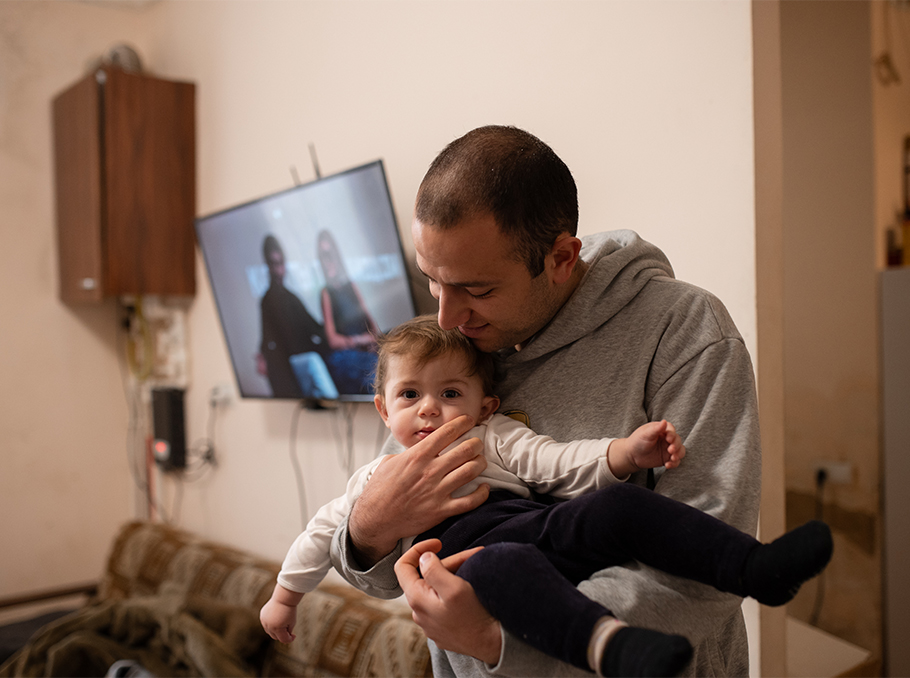 Vache Vardanyan and little Gohar
Vache Vardanyan and little GoharWithin the framework of “Mairenik” program, the Foundation also organizes various events for all the children born after their fathers were killed in the war. “During our events and meetings, mothers get to know each other, share experiences, and a strong and supportive community is formed,” says Vache Vardanyan.
Currently, “Hayordi” Foundation’s “Khokha” (in Artsakh dialect “khokha” means “child”) child development center continues to operate, providing tailored programs and activities for children aged 3-6 from families affected by the war. The Foundation plans to hold the annual “Hayordi” camp again this summer.
Gayane Yenokyan
Photos: David Ghahramanyan / “Hayordi” Foundation









